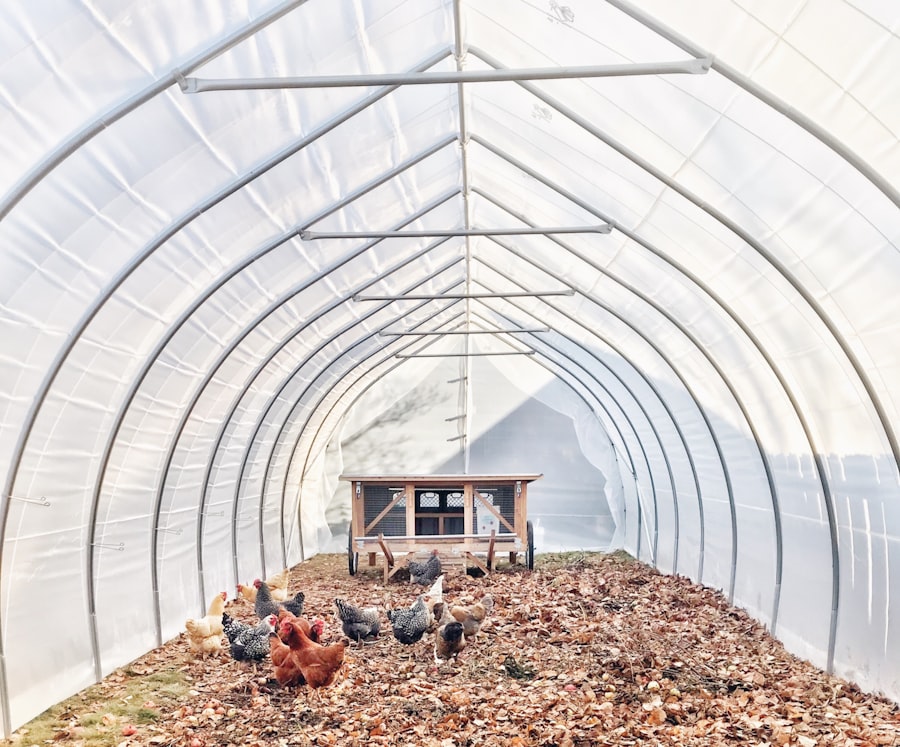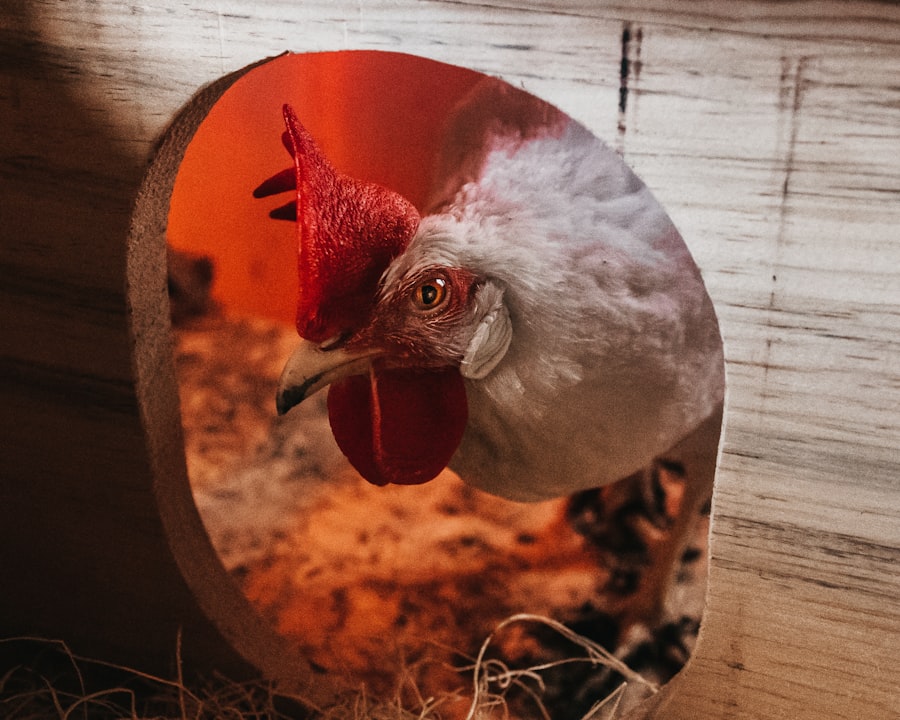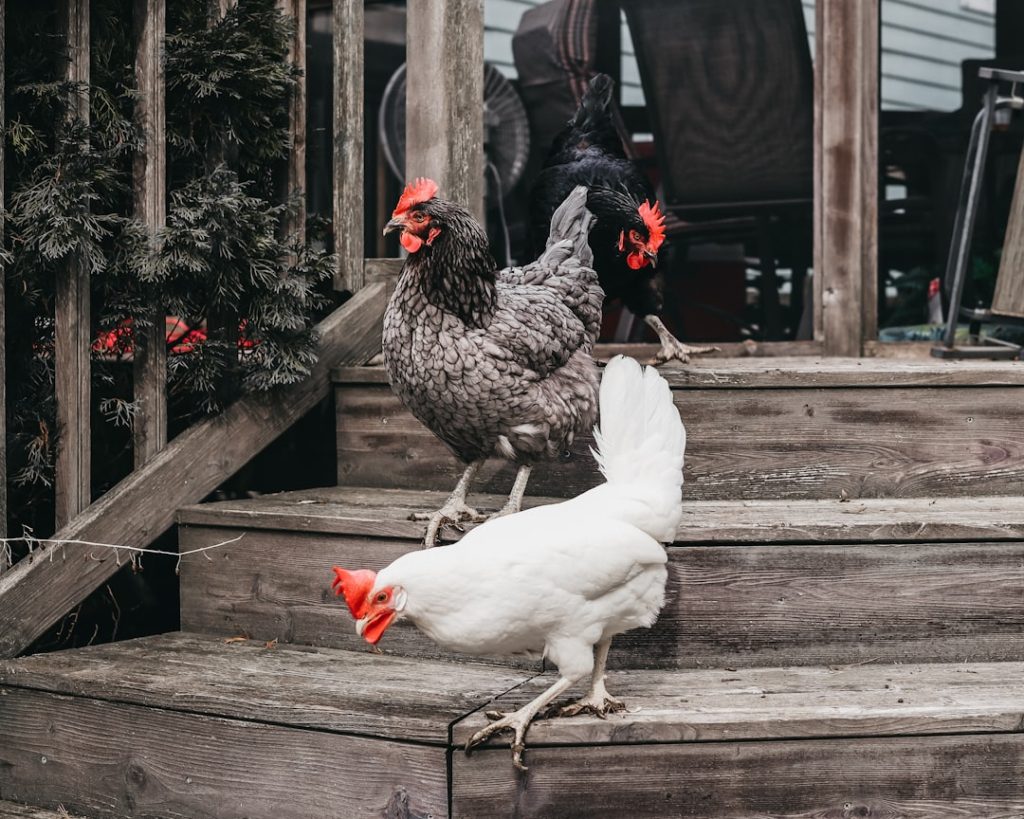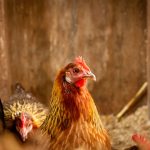Broiler chicken farming is a profitable agricultural enterprise in Zambia, serving as a substantial income source for numerous farmers. The demand for broiler chickens in the country has been consistently rising, driven by population growth and a preference for poultry meat. This form of poultry farming specializes in raising chickens specifically for meat production.
Broiler chickens are bred and reared to achieve market weight rapidly, typically within 6-8 weeks. The accelerated growth rate makes broiler chicken farming an appealing option for farmers seeking to maximize profits in a relatively short timeframe. In Zambia, broiler chicken farming attracts both small-scale and large-scale farmers.
The comparatively low initial investment and quick profit turnaround make it an accessible venture for individuals entering the poultry farming sector. The increasing demand for poultry meat in Zambia creates numerous opportunities for broiler chicken farmers to capitalize on the market. With appropriate knowledge, resources, and management techniques, broiler chicken farming can be a sustainable and rewarding business endeavor for Zambian farmers.
Table of Contents
- 1 Selecting the Right Breeds for Broiler Chicken Farming
- 2 Setting Up the Broiler Chicken Housing and Environment
- 3 Feeding and Nutrition for Broiler Chickens
- 4 Health and Disease Management for Broiler Chickens
- 5 Broiler Chicken Management and Care
- 6 Marketing and Selling Broiler Chickens in Zambia
- 7 FAQs
- 7.1 What are broiler chickens?
- 7.2 What are the key factors to consider when keeping broiler chickens in Zambia?
- 7.3 What type of housing is suitable for broiler chickens in Zambia?
- 7.4 What should broiler chickens in Zambia be fed?
- 7.5 How can disease management be addressed when keeping broiler chickens in Zambia?
- 7.6 What are the key considerations for accessing clean water for broiler chickens in Zambia?
Key Takeaways
- Broiler chicken farming is a popular and profitable venture in Zambia, providing a source of income and food for many households.
- When selecting breeds for broiler chicken farming, it is important to consider factors such as growth rate, feed conversion ratio, and disease resistance.
- Proper housing and environment are crucial for broiler chickens, including adequate space, ventilation, and protection from predators and extreme weather conditions.
- Feeding and nutrition play a key role in the growth and development of broiler chickens, with a balanced diet of protein, carbohydrates, vitamins, and minerals being essential.
- Health and disease management are critical aspects of broiler chicken farming, requiring regular monitoring, vaccination, and prompt treatment of any illnesses to ensure a healthy flock.
Selecting the Right Breeds for Broiler Chicken Farming
Key Factors to Consider
When choosing the right breeds for your broiler chicken farm in Zambia, there are several key factors to consider. These include growth rate, feed conversion ratio, disease resistance, and market demand. By taking these factors into account, you can ensure that you select breeds that are well-suited to the Zambian climate and farming conditions.
Popular Breeds for Zambian Farms
Some popular broiler chicken breeds suitable for farming in Zambia include Ross 308, Cobb 500, and Arbor Acres. These breeds are known for their fast growth rate, efficient feed conversion, and overall robustness, making them well-suited to the local climate and farming conditions.
Meeting Market Demands and Sourcing High-Quality Chicks
When selecting broiler chicken breeds, it’s essential to consider the specific requirements of your target market. Different breeds may have varying preferences in terms of meat quality, size, and appearance, so understanding the demands of your customers is crucial for maximizing your sales potential. Additionally, it’s important to source your broiler chicks from reputable hatcheries or suppliers to ensure the quality and genetic integrity of the breeds. By carefully selecting the right breeds and sourcing high-quality chicks, you can set the foundation for a successful and profitable poultry business in Zambia.
Setting Up the Broiler Chicken Housing and Environment

Creating a suitable housing and environment for broiler chickens is essential for their health, well-being, and overall growth. The housing should provide adequate space, ventilation, lighting, and protection from predators and adverse weather conditions. In Zambia, the design and construction of broiler chicken housing should take into account the local climate, with proper insulation and ventilation to regulate temperature and humidity levels.
Additionally, the housing should be easy to clean and maintain to ensure a hygienic environment for the chickens. The broiler chicken housing should also be equipped with appropriate feeding and watering systems to ensure that the chickens have access to clean water and balanced feed at all times. Proper lighting is crucial for regulating the chickens’ growth and behavior, so installing suitable lighting fixtures is important for optimizing their development.
Furthermore, biosecurity measures should be implemented to prevent the spread of diseases and minimize the risk of infections within the flock. By setting up a well-designed and functional housing environment, broiler chicken farmers in Zambia can create optimal conditions for their chickens to thrive and reach market weight efficiently.
Feeding and Nutrition for Broiler Chickens
Feeding and nutrition play a critical role in the growth and development of broiler chickens. A well-balanced diet is essential for ensuring that the chickens reach market weight within the desired timeframe while maintaining good health and muscle development. In Zambia, broiler chicken farmers should formulate or purchase high-quality feed that meets the nutritional requirements of the chickens at each stage of their growth.
The feed should contain essential nutrients such as protein, carbohydrates, fats, vitamins, and minerals to support the chickens’ overall health and productivity. Feeding management is also important in broiler chicken farming, as it directly impacts feed conversion efficiency and overall production costs. Farmers should establish feeding schedules and monitor the chickens’ feed intake to prevent underfeeding or overfeeding, which can lead to health issues or inefficient growth.
Additionally, access to clean water is crucial for proper digestion and nutrient absorption, so ensuring that the chickens have constant access to fresh water is essential for their well-being. By prioritizing feeding and nutrition management, broiler chicken farmers in Zambia can optimize their production efficiency and produce high-quality meat products for the market.
Health and Disease Management for Broiler Chickens
Maintaining good health and disease management practices is vital for the success of broiler chicken farming in Zambia. Preventing diseases through proper biosecurity measures, vaccination programs, and regular health monitoring is essential for minimizing the risk of outbreaks and ensuring the overall well-being of the flock. Farmers should work closely with veterinarians or poultry health experts to develop comprehensive health management plans tailored to their specific farm conditions and challenges.
In addition to proactive disease prevention measures, farmers should also be prepared to identify and address common health issues that may arise in broiler chickens, such as respiratory infections, coccidiosis, or nutritional deficiencies. Early detection and prompt treatment of health problems are crucial for minimizing losses and maintaining the productivity of the flock. Furthermore, maintaining a clean and hygienic housing environment, proper waste management, and regular sanitation practices are important components of disease management in broiler chicken farming.
By prioritizing health and disease management, farmers can safeguard their investment and ensure the sustainable production of high-quality broiler chickens in Zambia.
Broiler Chicken Management and Care

Monitoring and Tracking Growth
Effective management and care practices are crucial for maximizing the productivity and welfare of broiler chickens on the farm. Farmers should closely monitor the chickens’ growth, behavior, and overall well-being to identify any issues or challenges that may arise. Regular weighing of the chickens can help track their growth progress and adjust feeding programs accordingly to ensure that they reach market weight within the desired timeframe.
Providing Proper Care and Housing
Providing proper care for the chickens includes handling them with care, ensuring that they have access to clean water and feed at all times, and maintaining a comfortable housing environment. Farmers should also be mindful of stocking densities to prevent overcrowding and reduce stress among the chickens. Additionally, implementing enrichment activities or providing suitable environmental stimuli can help promote natural behaviors and reduce boredom within the flock.
Proactive Planning and Decision-Making
Overall, effective broiler chicken management involves proactive planning, regular monitoring, and responsive decision-making to address any issues that may arise during the production cycle. By prioritizing the care and management of broiler chickens, farmers can optimize their production efficiency and ensure the welfare of their flock in Zambia.
Marketing and Selling Broiler Chickens in Zambia
Marketing and selling broiler chickens in Zambia require strategic planning and an understanding of market dynamics to maximize profitability. Farmers should identify potential buyers such as local markets, supermarkets, restaurants, or wholesalers who have a demand for poultry meat products. Establishing strong relationships with buyers can help secure consistent sales opportunities and potentially negotiate favorable pricing terms.
In addition to traditional sales channels, farmers can also explore direct-to-consumer marketing strategies such as selling at farmers’ markets or establishing their own retail outlets to reach consumers directly. Leveraging digital marketing platforms or social media can also help raise awareness of their products and attract potential customers. Furthermore, branding and packaging play a crucial role in differentiating their products in a competitive market and appealing to consumer preferences.
Maintaining high standards of product quality, consistency, and customer service is essential for building a positive reputation in the market and securing repeat business. By implementing effective marketing strategies and prioritizing customer satisfaction, broiler chicken farmers can successfully sell their products in Zambia’s competitive poultry meat industry while maximizing their profitability.
If you’re interested in learning more about how to keep broiler chickens in Zambia, you may also want to check out this article on turning a shed into a chicken coop. This article provides valuable insights into creating a suitable living space for your chickens, which is essential for their health and well-being.
FAQs
What are broiler chickens?
Broiler chickens are a type of chicken that is specifically bred and raised for meat production. They are typically ready for slaughter at around 6-8 weeks of age.
What are the key factors to consider when keeping broiler chickens in Zambia?
When keeping broiler chickens in Zambia, it is important to consider factors such as housing, feeding, disease management, and access to clean water. Additionally, the local climate and environmental conditions should be taken into account.
What type of housing is suitable for broiler chickens in Zambia?
Suitable housing for broiler chickens in Zambia should provide adequate space, ventilation, and protection from predators. The housing should also be easy to clean and maintain, and should allow for proper waste management.
What should broiler chickens in Zambia be fed?
Broiler chickens in Zambia should be fed a balanced diet that includes a combination of commercial feed, grains, and supplements. It is important to ensure that the chickens have access to clean and fresh feed at all times.
How can disease management be addressed when keeping broiler chickens in Zambia?
Disease management for broiler chickens in Zambia involves implementing biosecurity measures, vaccination programs, and regular health monitoring. It is also important to work with a veterinarian to develop a disease prevention and treatment plan.
What are the key considerations for accessing clean water for broiler chickens in Zambia?
Access to clean water is crucial for broiler chickens in Zambia. It is important to provide a constant supply of clean water, and to regularly clean and maintain waterers to prevent contamination. Water quality should also be monitored to ensure it is safe for the chickens to drink.
Meet Walter, the feathered-friend fanatic of Florida! Nestled in the sunshine state, Walter struts through life with his feathered companions, clucking his way to happiness. With a coop that’s fancier than a five-star hotel, he’s the Don Juan of the chicken world. When he’s not teaching his hens to do the cha-cha, you’ll find him in a heated debate with his prized rooster, Sir Clucks-a-Lot. Walter’s poultry passion is no yolk; he’s the sunny-side-up guy you never knew you needed in your flock of friends!







